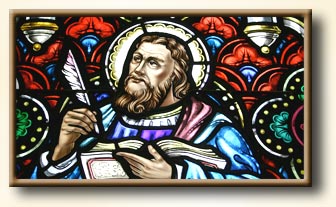|
A good deal of confusion exists in the minds of Anglicans and among Protestant Christians over the terms “minister” and “priest”. Are they just two terms for the same thing? The answer is definitely “no.”
The Book of Common Prayer uses both words, but not indiscriminately. For example, throughout the Office of Morning Prayer, the word Minister is used, with a single exception, that the absolution is to be pronounced by a Priest. In the Order for Holy Communion, on the other hand, the term Priest is used almost uniformly, except for the rubrics relating to the reading of the Epistle and the Gospel. And so it is with the other sacraments and services of the Church. The word Minister is most commonly used, except in the services of Confirmation and of Ordinations and of Institution, where it is most specified that a Bishop shall be the officiant.
What, then, is the difference? First, as to Minister, there are two kinds of Ministers -- unordained and ordained. All Christians are Ministers in the sense that they are to proclaim the Gospel, to participate in the offering of worship to God, to comfort and help the needy, the poor and the sick, as well as all their fellow Christians. The parties to the nuptial contract in the Solemnization of Matrimony are the Ministers, the role of the Priest being to represent the Church as witness to the contract and to pronounce a blessing on the union. A lay baptized person may also be the minister to baptize in cases of necessity when an ordained minister is not available.
There are two special types of unordained Ministers. Deaconesses are “set apart” but not ordained, and they can read Morning and Evening Prayer (except for the absolution) and the Litany. Lay Readers are specially licensed and they may read the same portions of Morning and Evening Prayer, the Litany, the Burial Office, the Epistle in the Order for the Holy Communion and certain other offices (always omitting priestly blessings or absolutions).
The Ordained Ministry, in Anglicanism and Catholicism generally, is limited to three apostolic Orders of Bishops, Priests and Deacons. Their ordination is accomplished by the Bishop or Bishops, and by the laying on of hands. A Deacon is a Minister, ordained and authorized to assist in the celebration of Holy Communion, to read the Gospel thereat and administer the chalice, and to act as Minister at numerous other services, more widely than Deaconesses or Lay Readers. Still he is not a Priest, but a minister.
To the priest, through the laying on of hands by the Bishop, is given the sacred responsibility and authority to administer the Holy Communion and Baptism (normally) to represent Christ at the altar, to pronounce God’s absolution and God’s blessing. These are the things that no Minister, ordained or unordained, can do.
The Bishop is, of course, the focal point of the ordained ministry. He is the Church’s Chief Priest, pastor, teacher, liturgist and defender of the faith in a diocese. He is the successor in his diocese of the Apostles, the first Bishops. He gives legitimacy to the Church as the continuation of the earliest Christian Body.
Anglicans believe that only through Bishops, and their assistants, representatives and vicar in the ordained ministry, Priests and Deacons, can the catholic faith be carried on. The catholic faith is simply the full Christian faith spread by the Apostles and marked by Sacramental worship. The unordained ministry of laity, Deaconesses and Lay Readers, in Anglicanism (and their counterparts in other sectors of the Church catholic) and or ordained ministers in Protestant sects carry on an invaluable, worthy and essential function of worship, teaching, prayer and praise. Only in the Anglican (or other catholic) ordained Ministry, however, can be found the means to carry on the full, complete, sacramental worship spread by the Apostles. Anglicanism thus possesses something very special and very precious in the ordained apostolic ministry.
|



